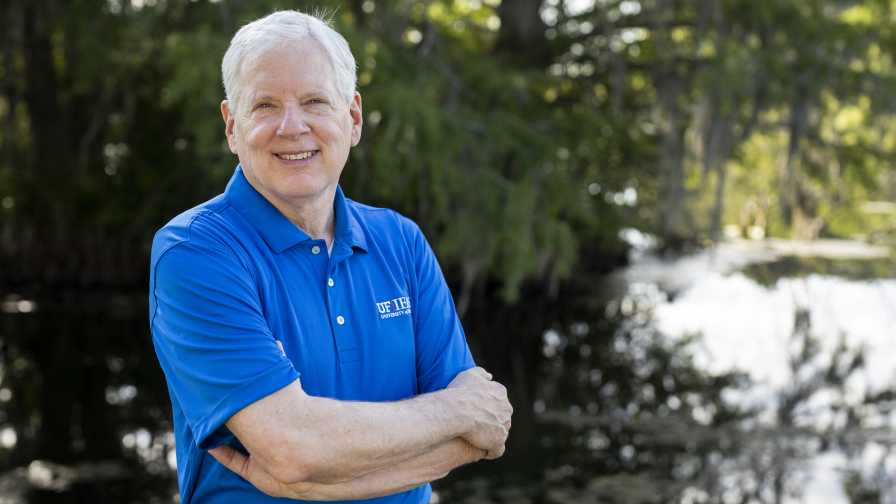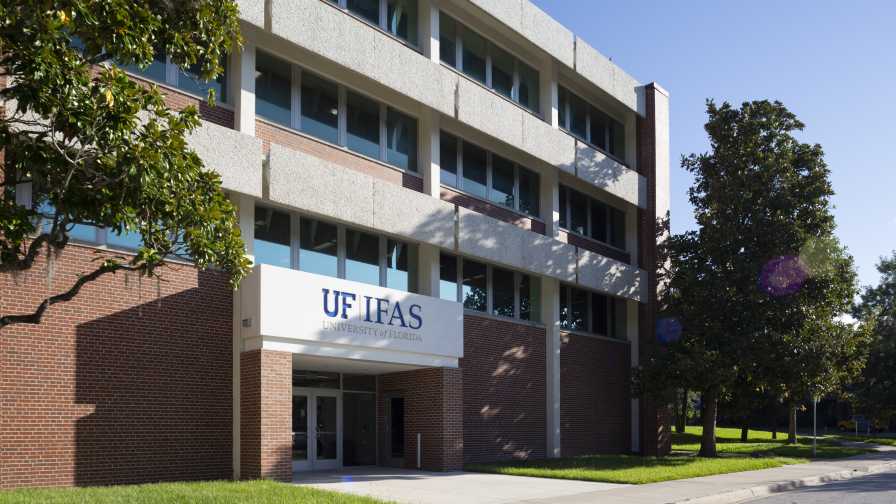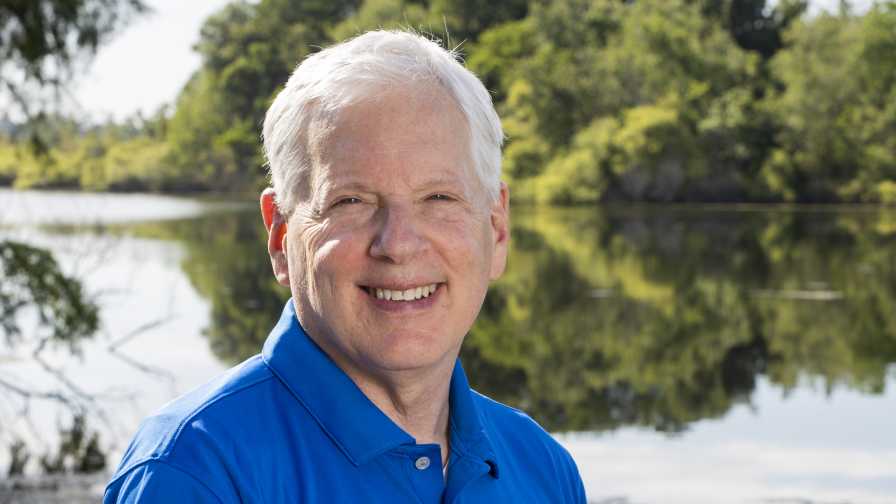Get to Know the New Leader of UF/IFAS

Meet J. Scott Angle, the new leader of University of Florida’s Institute of Food and Agricultural Sciences.
Photo courtesy of UF/IFAS
Jack Payne retired from his job as the Senior Vice President of UF/IFAS earlier this month following a decade of service. After an extensive search process, Dr. J. Scott Angle was selected to take on leadership of the Institute, which includes the College of Agricultural and Life Sciences, the statewide Extension Service, and a research arm comprised of nearly 500 tenured and non-tenured faculty.
Prior to joining UF/IFAS, Angle was the Director of the USDA’s National Institute of Food and Agriculture (NIFA). The agency is the primary source of federal funding of important agricultural research in the U.S. Prior to the NIFA appointment, he served as President and CEO of the International Fertilizer Development Center, where he oversaw a staff of more than 800 and coordinated development projects in diverse regions of the world.
He also served as Dean and Director of the College of Agricultural and Environmental Sciences at the University of Georgia for 10 years. “NIFA is the primary funder of land-grant agricultural research, and my experience there gives me a deep understanding of priorities and needs,” Angle says. “UF is already one of the most successful land-grant universities when it comes to NIFA funding, and my hope is to help them move the research needle even farther.”
Top Priorities
As Angle settles into the new job, he says his first priority will be to listen and learn to seek opportunities to improve the land-grant’s mission delivery. “I will visit every county Extension office and research center as soon as practicably possible to learn more about Florida agriculture and natural resources,” he says. “As noted, UF/IFAS is an outstanding organization; however, each day is an opportunity to seek improvement and reach new stakeholders.”
Another critical task will be helping to manage UF’s response to the COVID-19 pandemic. UF/IFAS has moved many Extension services online and is offering virtual workshops and other education. New lab procedures have been put into place to ensure critical research continues, but safely. Faculty moved efficiently to offer classes online for students. Now, a number of task forces are looking at best approaches to reopen campuses, Extension facilities, research centers, and other locations.
“Another program I would like to institute is the Vice President’s Promise (VPP),” Angle says. “This will be my very personal promise to assure that every student will have a unique and impactful experience beyond the classroom. For example, it might be working in the lab or at an Extension office, participating in a study abroad course, or an internship in Washington, DC. Some of these opportunities will have costs associated with them; therefore, we will initiate a fundraising campaign around the VPP so all students can participate. My wife Kay and I look forward to being the first donors to the VPP.”

The UF/IFAS College of Agriculture and Life Sciences has an enrollment of nearly 6,000 undergraduate and graduate students.
Photo courtesy of UF/IFAS
The Future of Research
Angle says it’s an exciting time to be involved in agriculture and associated research. Technology is advancing at a faster pace than at any time in our lifetimes. He says artificial intelligence (AI) will be a unifying element of technological advancements.
“Robotics, visioning, automation, and genetic advances will need advanced AI to benefit growers,” he says. “Fortunately, UF recognized this early on and is developing a program to significantly ramp up AI research at the university. Agriculture can be one of the most important beneficiaries of AI technologies, which can help solve many of the vexing problems and challenges we face. UF/IFAS will prioritize AI, specifically how it can increase yields, lower inputs, and improve economic return for our community.”
He adds science must find a good balance between basic and applied research because one cannot exist without the other.
“Only basic or only applied research is a dead end — at least for the agricultural community,” Angle says.
Funding research will continue to be a grant-driven process. Angle says that competition brings the best, most relevant needs to surface. Those funds come from both the federal and state levels.
“Fifty percent of NIFA funding provides capacity funds to land-grants,” he says. “These funds often support the farms and herds that are the ‘living laboratory’ for agricultural scientists. Florida also matches these funds as part of its commitment to our industry. It’s a hybrid model. We must have federal and state funds to support capacity. With capacity, the scientists have the basis to pursue competitive research dollars and be successful.”
He says another important priority will be building better communication with UF/IFAS constituents and the public. This will be vital for the sustain-ability of agriculture in an increasingly urban nation.
“The motto of 4-H is ‘to make the best better,’” Angle says. “That’s exactly how my wife and I feel about coming to UF/IFAS. We look forward to learning and supporting students, faculty, and staff who are executing our mission to teach, discover, and extend knowledge.”
What Excites You About the New Job?
We asked the new UF Vice President of Agriculture and Natural Resources and leader of UF/IFAS what excites him about the main disciplines his new role will encompass — research, Extension, and teaching.
Here’s what he had to say.
RESEARCH: “UF/IFAS ranks in the top echelon of agricultural research institutions in the U.S. But the most impactful science comes from the intersection between basic and applied sciences that addresses current dilemmas facing our food systems. Nowhere in the U.S. are basic and applied science so well balanced as at UF/IFAS. As a result, I confidently state that UF/IFAS researchers are the most impactful of any agricultural science program in the U.S., and most likely the world. Honestly, this was the primary characteristic that drew me to this position.”
EXTENSION: “Some Extension programs in the U.S. are in disrepair. They have lost both their focus and stakeholder support. Not in Florida. UF/IFAS Extension remains in every county and serves all citizens of the state regardless of where they call home. I believe in the county Extension funding model. One-on-one interaction is still needed to solve complex problems that Florida growers face every day. It’s true that technology will significantly change the way Extension does its work, but we can never lose sight of the fact that many of these complex challenges still require walking the field, chatting in the home office, or visiting a school for our programs to address these problems effectively.”
TEACHING: “NIFA recognizes excellence in teaching every year. The UF/IFAS College of Agricultural and Life Sciences has been recognized for having more outstanding teachers than any other university in the U.S. by NIFA. That’s impressive, given the competition. Congratulations to Dean Elaine Turner and her team for making these awards possible, and to the deserving faculty who bring research-based knowledge to the next generation of agricultural and natural resources professionals.”











